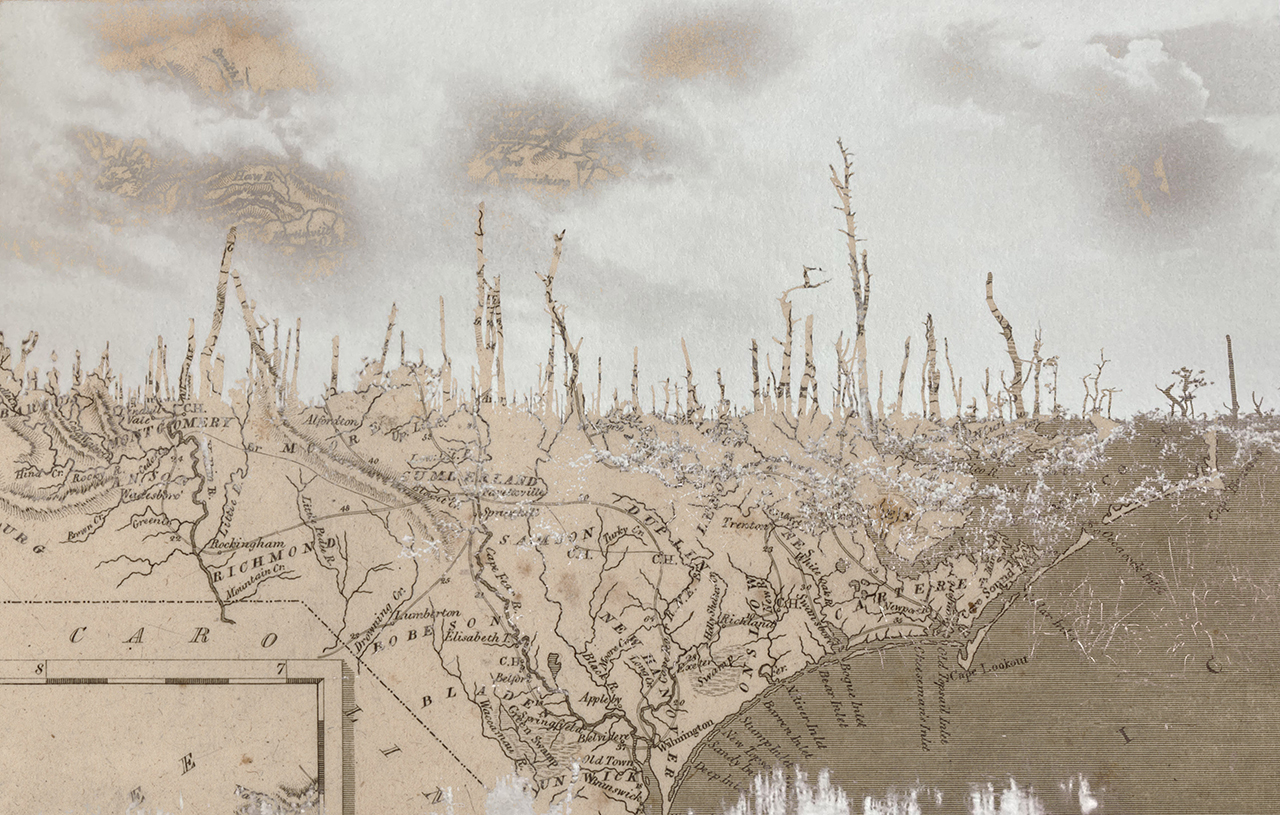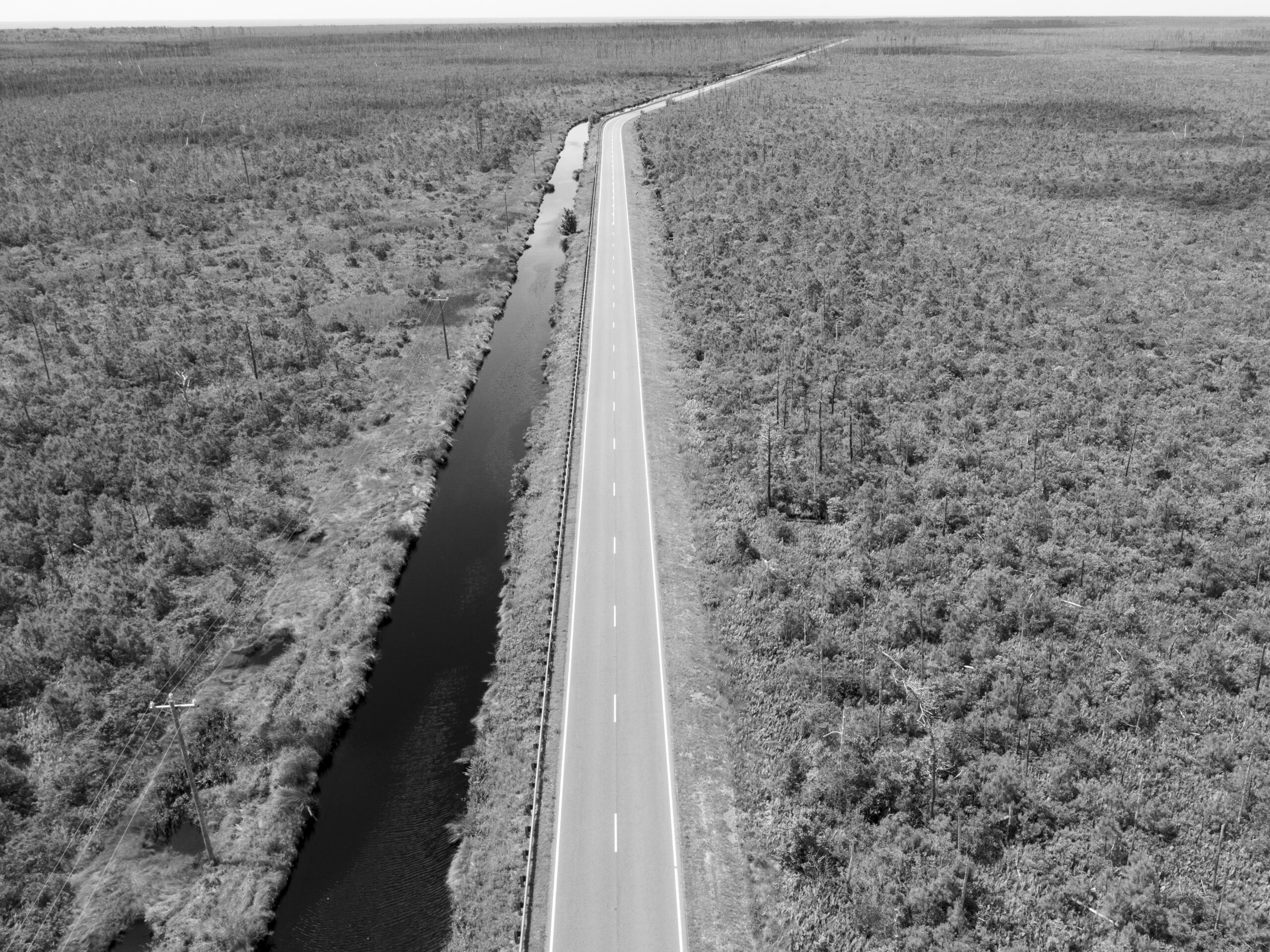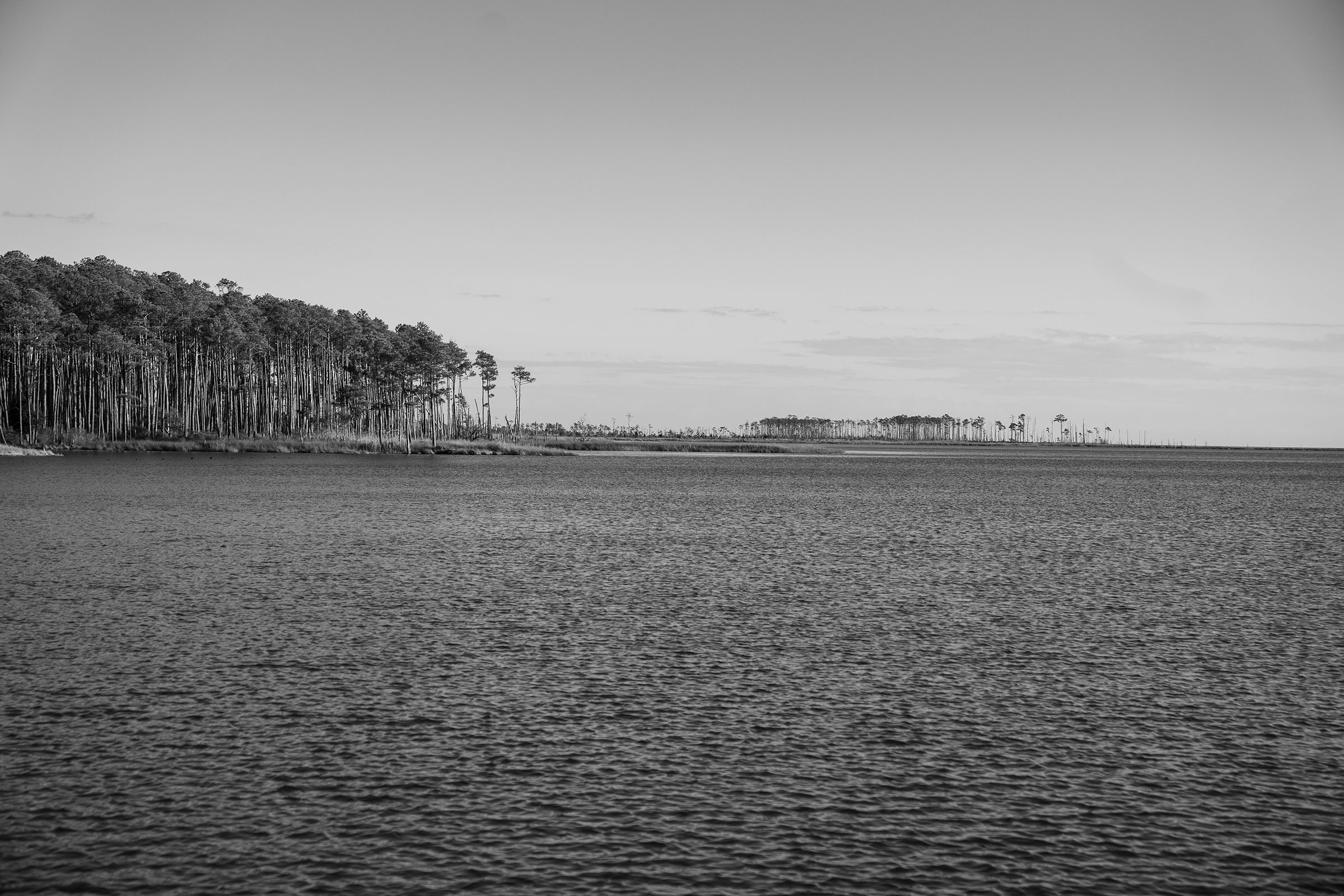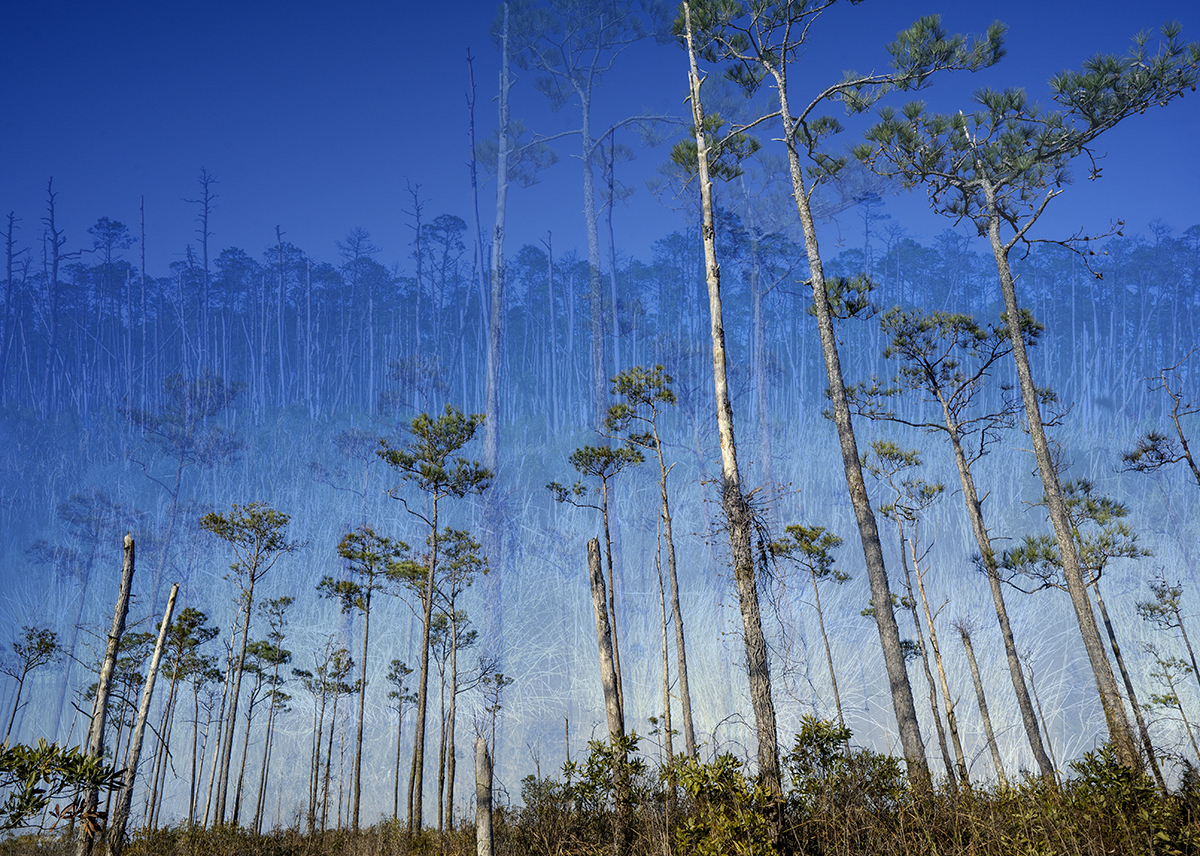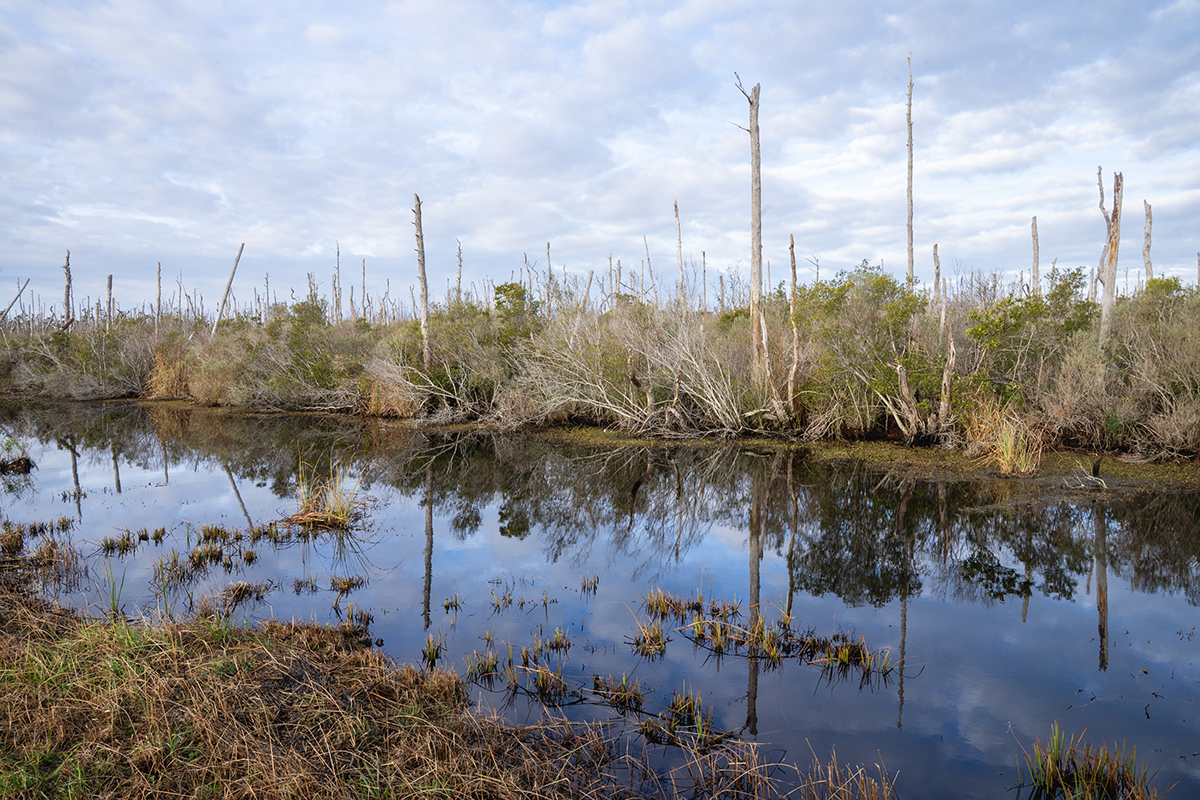Seconded By: Philippe Chancel,
Thirteen Hours to Fall examines the climate crisis through investigations of contemporary and future ghost forests on the mid-Atlantic coast. Ghost forests, large areas of dead and dying trees, are visible manifestations of intruding salt water. In this project, I consider how colonial capitalists, the ensuing extraction economy, and rising sea levels have dramatically changed this landscape over the last 400 years. This interdisciplinary and intersectional project is informed by environmental history, including the marginalization of indigenous peoples and appropriation of their lands as well as the imprint of slavery and white supremacy in this region. Colonial timber industries, plantation farming, and climate change have extensively altered this region. Results of this shifting landscape include massive tree deaths, diminished carbon storage and biodiversity, and critical impacts on local communities.
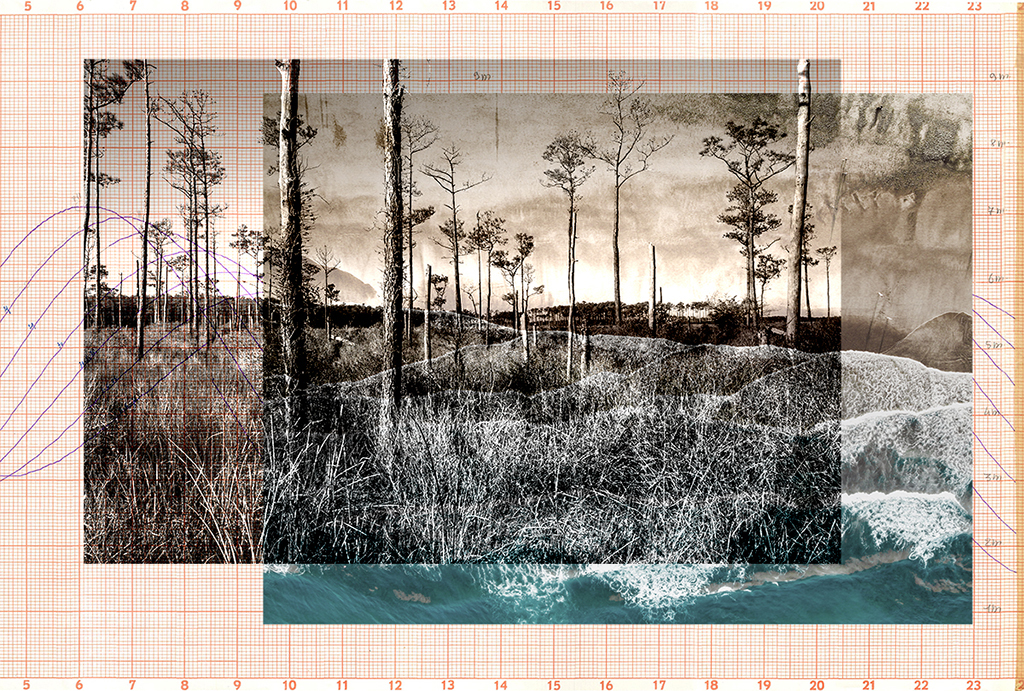
Two Trees Marigram
Photomontage of ghost forest landscape superimposed with marigram tidal chart and drone image of shoreline waves
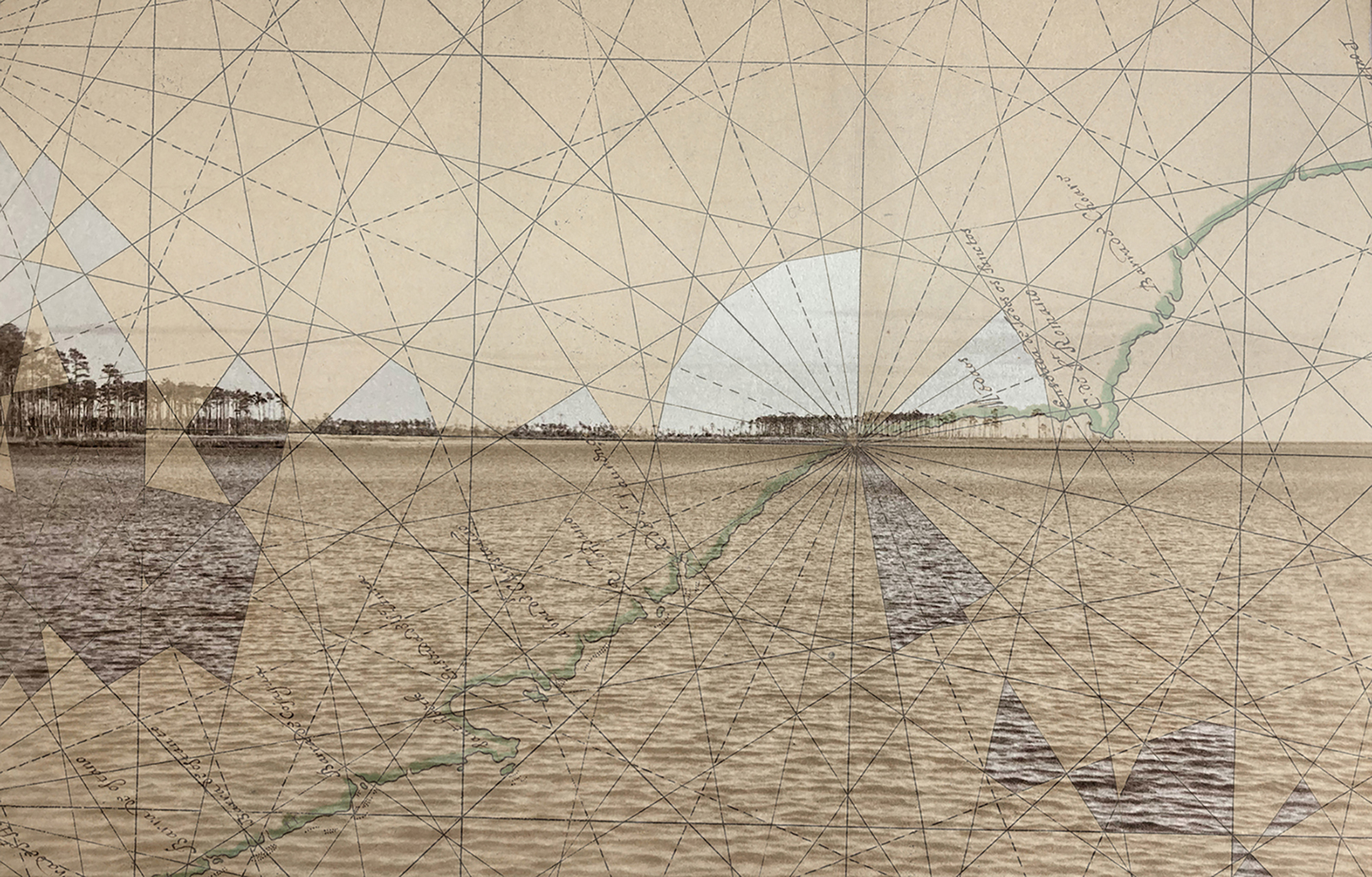
Map Lines
Horizon of pine trees which appear to march toward the ocean. Salted paper photograph with colored pencil.
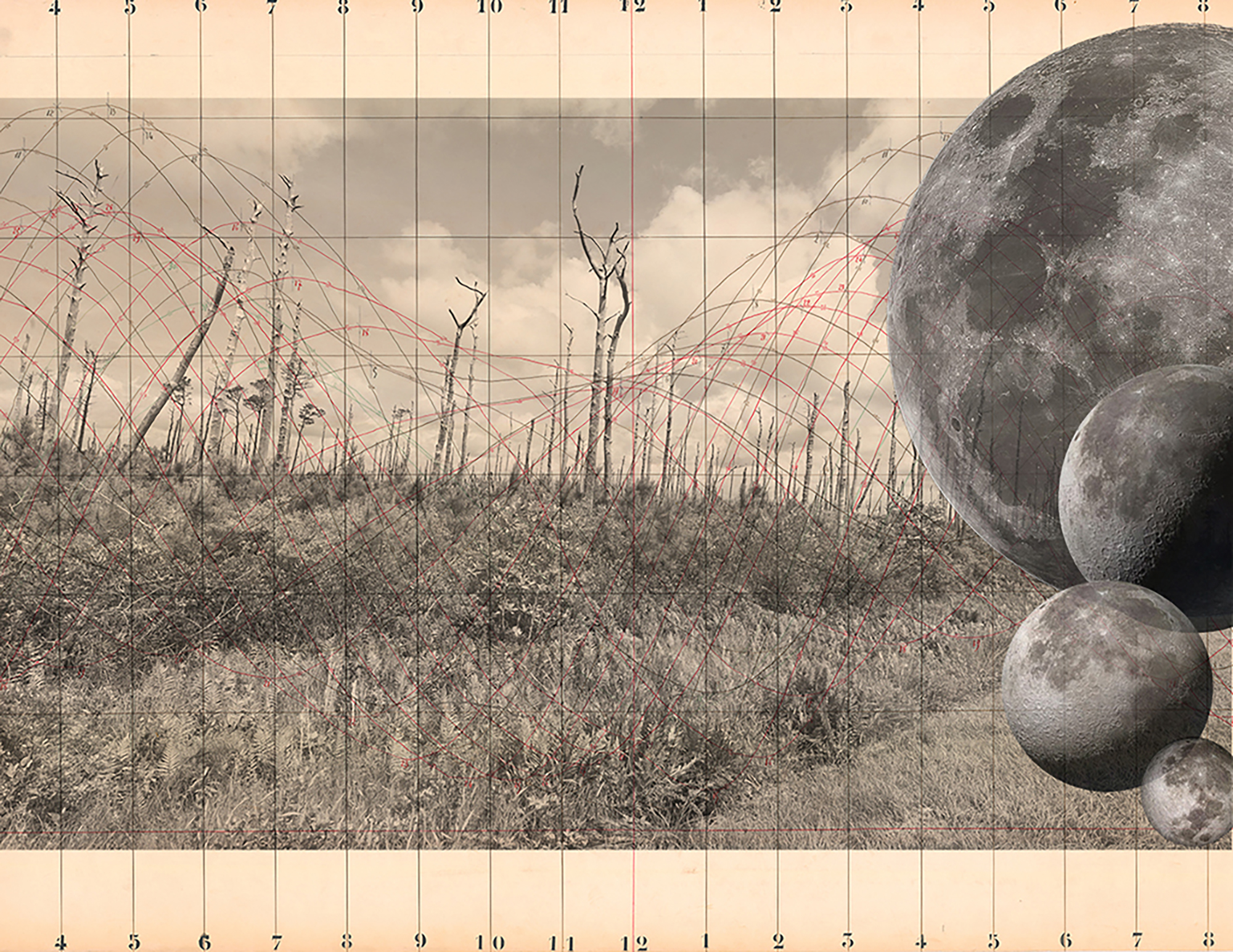
Tidal Moons
Landscape view of ghost forest juxtaposed with antique tidal marigram graph and planetary bodies which reflect the phases of the moon.
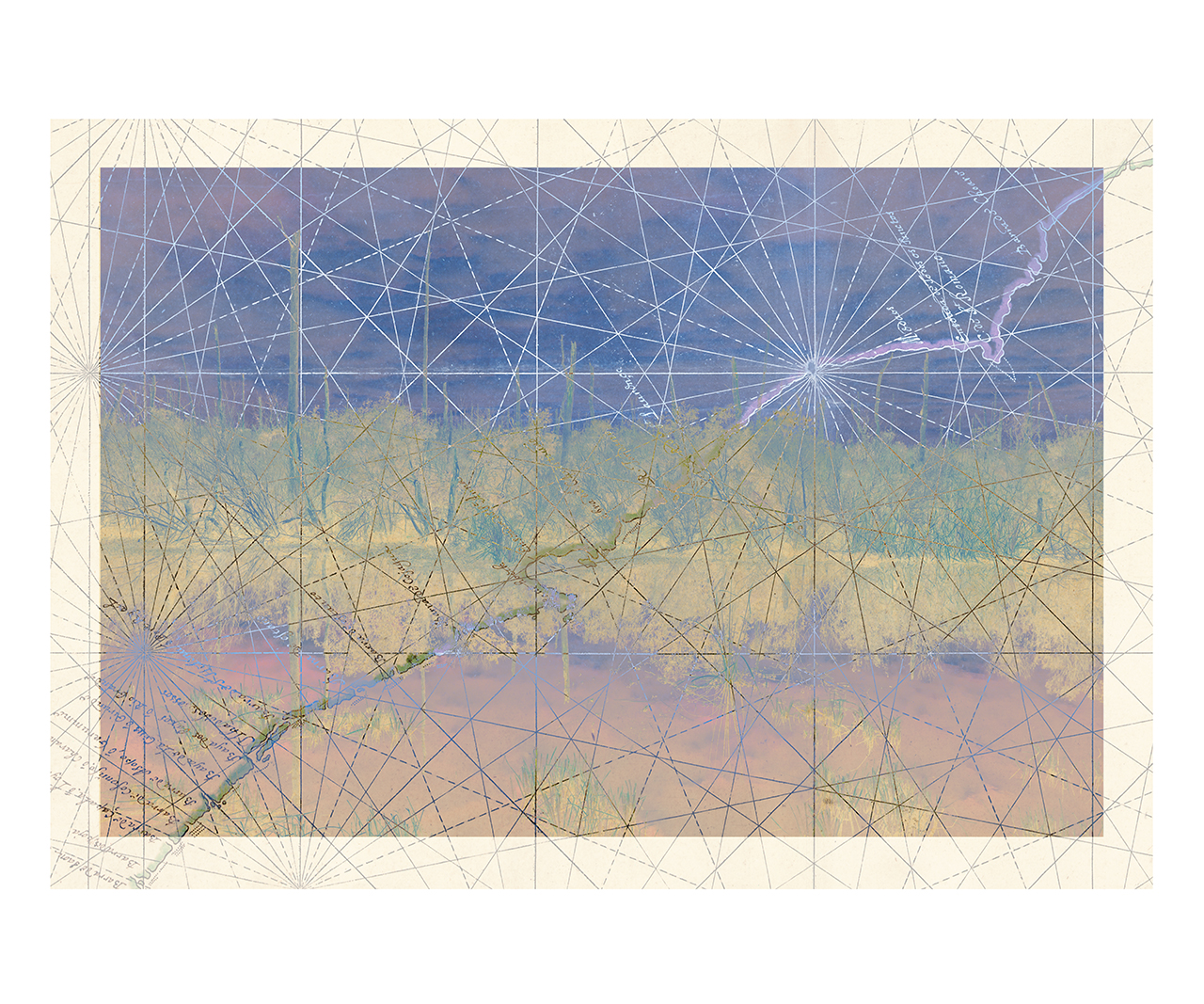
Safe Harbor
Photomontage with 18th century map of colonies overlaid on contemporary ghost forest image.
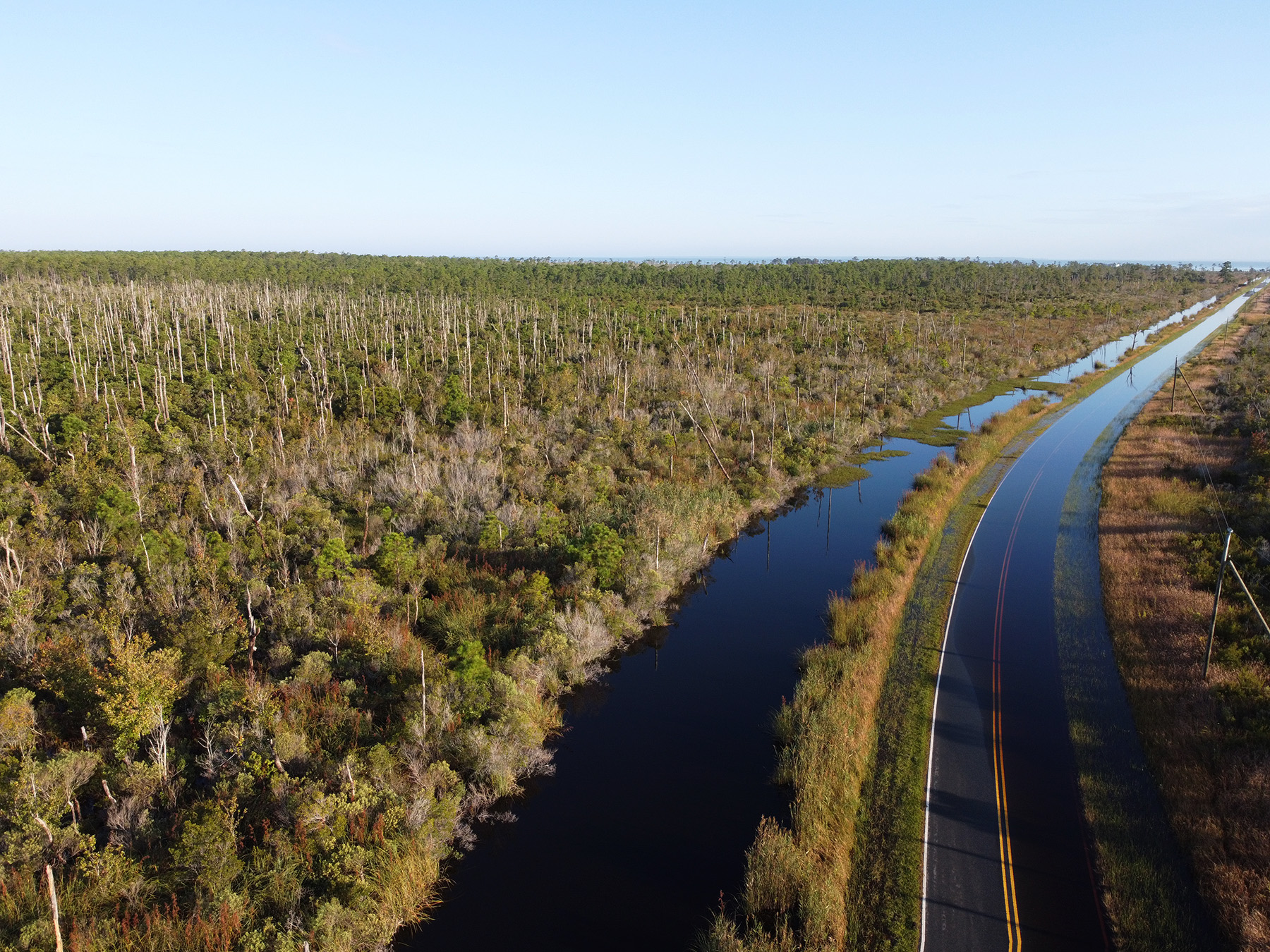
Double Flood
Storm-related flooding in Dare County. Canal and road flood with ghost forest landscape.
